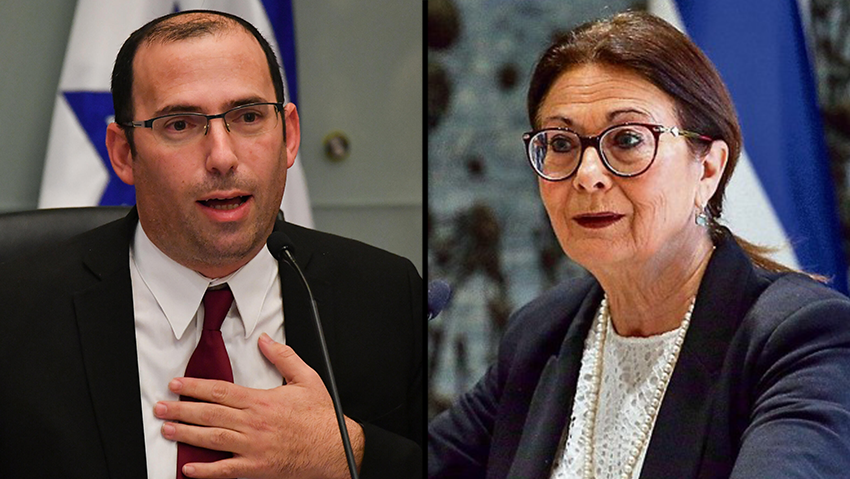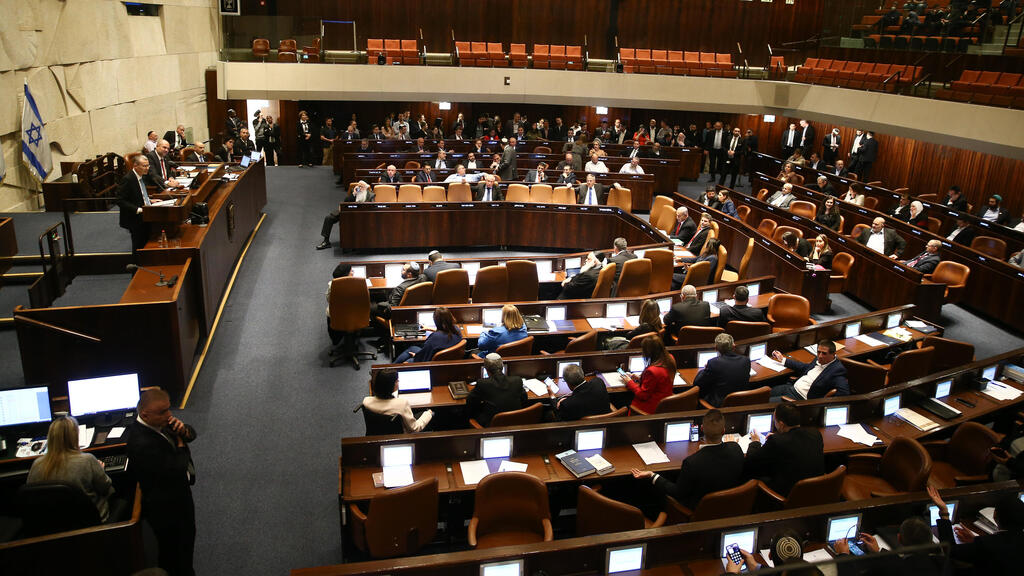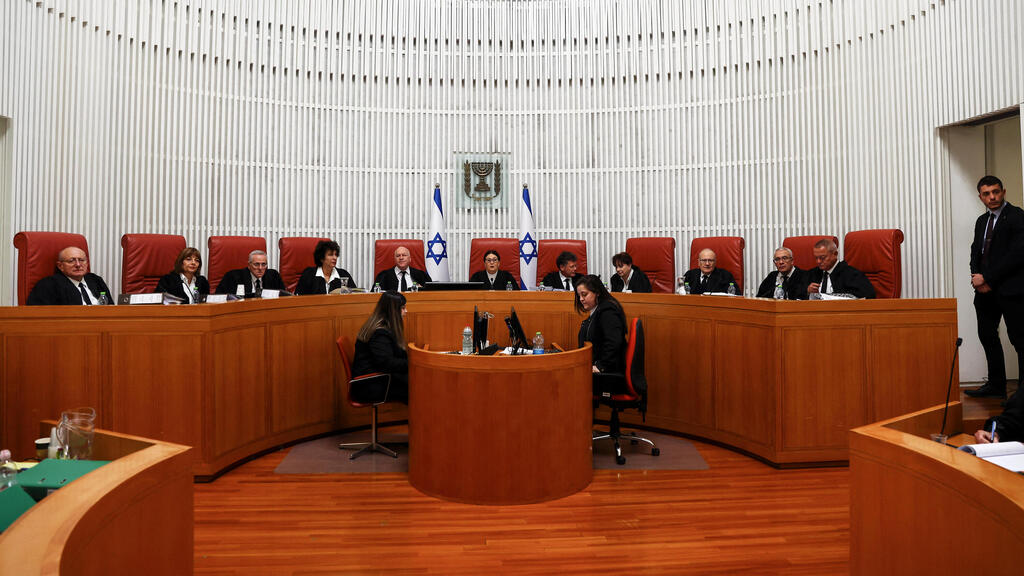A proposal to end the crisis around the government's proposed judicial overhaul was presented to President Issac Herzog and seen as having considerable chances of being accepted by the coalition as it continues its rush to pass controversial bills to a Knesset vote.
The proposal was authored by former justice minister Daniel Freidman, a vocal critic of the Supreme Court and former head of the National Security Council as well as others.
5 View gallery


Daniel Friedmann, Yuval Elbashan, Yariv Levin. Giora Yaron, and Giora Eiland
(Photo: Abiagil Uzi, Tal Shahar, Amit Shaal, Avi Koanx)
The optional compromise, made public by N12's political reporter includes an Override Clause that will allow the Knesset to overrule the Supreme Court rulings with a 65-seat majority.
According to the proposal, the passage of basic laws will require four readings in the Knesset and a majority of at least 61 votes in order to pass.
Should a basic law be approved by a majority of fewer than 70 votes, or if the law intends to amend the electoral system in Israel, the fourth reading of the bill would be voted on, only after new elections.
The existing basic laws, including Basic Law: Human Dignity and Liberty, passed in 1992, would be ratified by a majority of 70 votes in the current parliament in three readings. they could then only be amended under the proposed conditions.
Regular laws will be subject to judicial review by the Supreme Court and determined by a majority of at least 11 out of 15 judicial panel members.
The Knesset would be able to reintroduce laws overruled or amended by the Supreme Court, with a majority of 65 Knesset members. In the case of a 61-vote majority only, the laws would not come into effect until a new parliament is elected and would then be open to judicial review only after five years.
The authors of the compromise proposal offer two alternatives for the composition of the judges selection committee in line with Justice Minister Yariv Levin and the Constitution, Law Justice Committee chair Simcha Rothman’s proposed overhaul.
The first alternative proposes that the committee would consist of 11 members: The justice minister and two additional ministers, Constitution, the Law Justice Committee chair, two lawmakers from the coalition and two from the opposition, the Supreme Court chief justice, and two additional judges selected by the Supreme Court.
Supreme Court justices will be chosen by a majority vote of at least 8 out of 11 members of the committee.
In selecting judges for magistrate and district courts, instead of three Supreme Court judges, there will be one Supreme Court justice and two District Court judges selected by their colleagues.
An alternative proposal to lower court selections states that there will be a "tie" for all parties in the committee which will consist of 12 members as follows: four from the coalition, four from the opposition and four justices.
The alternative proposal for Supreme Court appointments states that justices will not have a vote and will only serve as observers and participate in discussions, except for the chief justice, who will have one option to veto a nominee suggested by the opposition and coalition per term.
Two judges will be selected for the Supreme Court at a time, one chosen by the coalition and the other by the opposition. The justice minister will also be able to veto an opposition appointment once per term.
The Coalition representatives will be the justice minister and the Constitution, Law, Justice Committee chair, and the other two would be appointed by the coalition whip or by its other members.
On behalf of the opposition, the four members will be appointed by the opposition leader or by its members. In any case, there will not be more than two representatives from the same political party.
Regarding appointments to the district or magistrate court, a majority of seven out of twelve committee members will be required, with the support of at least two of the coalition and opposition members, and at least three judges.
The proposal adds that the opinions issued by the Attorney General would not obligate the government.
The government and its ministers would be entitled to legal representation in any appeal or lawsuit filed against them related to their duties, and they do not need to rely on the attorney general for this purpose.
In the event that the AG refuses to represent ministers, an outside council could be appointed.
Judicial review over authorities will continue using the reasonability test as was done in the case of Shas party leader Aryeh Deri.
However, the test would not be used to disqualify appointments to the government or Knesset, or to appointments approved by the Knesset.
The appointment of a minister or prime minister, who was given the trust of the Knesset, would be subject to judicial review only in formal technical procedures or according to a specific violation of a basic law that interferes with the appointment.
Finally, only the Knesset would be able to vote to disqualify an acting prime minister in a process of its own choosing.






